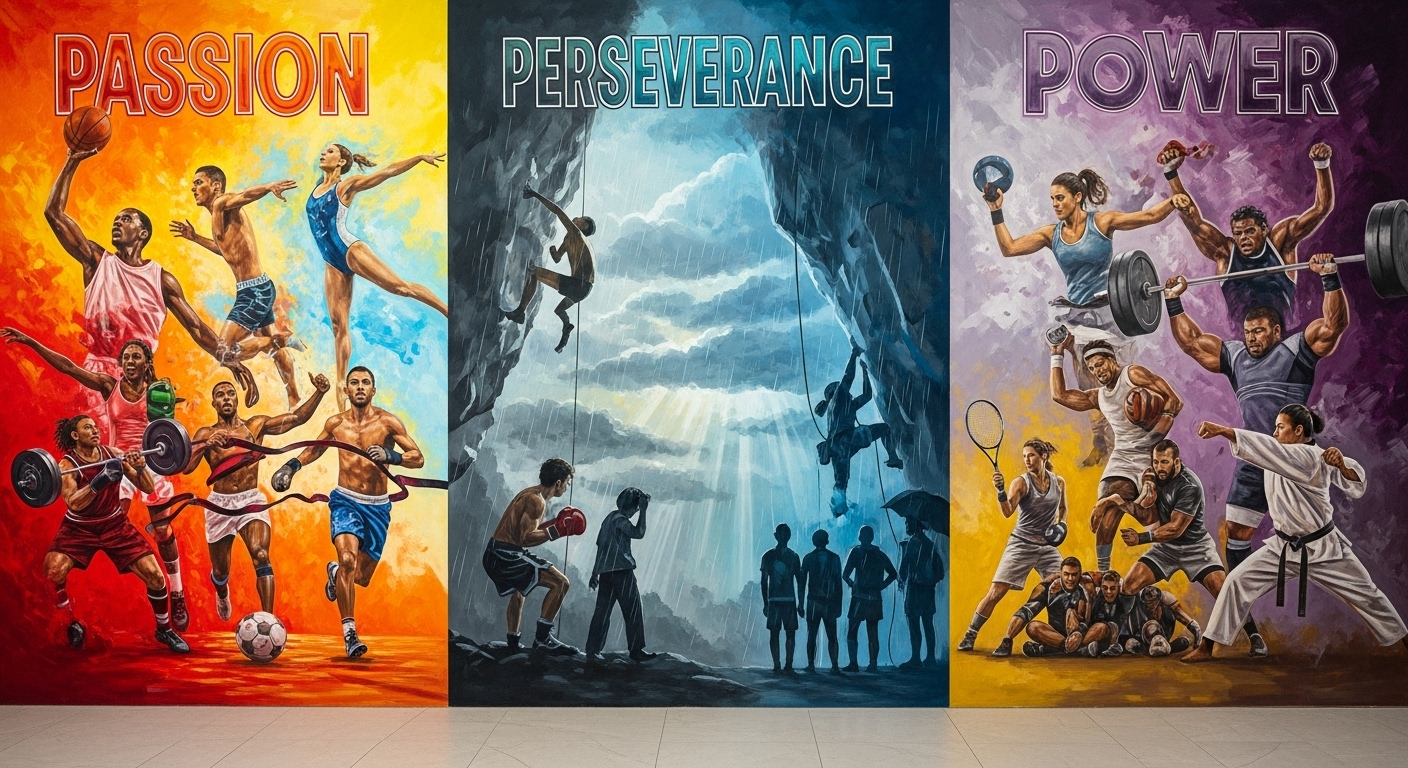Sports have been an integral part of human society for centuries. From the early Olympic Games in ancient Greece to modern professional leagues spanning the globe, sports are more than just competition—they are a reflection of culture, passion, and the human spirit. They inspire dedication, teamwork, and perseverance while providing entertainment and an outlet for personal expression.
The Historical Roots of Sports
The history of sports stretches back thousands of years. Ancient civilizations, such as the Egyptians, Greeks, and Romans, engaged in physical activities not just for survival but also for recreation and social bonding. Wrestling, running, and chariot racing were popular among these societies, serving as both entertainment and a method of demonstrating physical prowess.
The Olympic Games, first recorded in 776 BCE in Olympia, Greece, were among the earliest organized sporting events. They showcased not only athletic skill but also cultural pride and religious devotion. Over time, sports evolved from local contests to national and international spectacles, cementing their place in the human experience.
The Role of Sports in Society
Sports play a vital role in communities worldwide. They bring people together, foster a sense of belonging, and encourage social cohesion. Major sporting events such as the FIFA World Cup, the Olympics, and the Super Bowl unite millions of fans, transcending language, geography, and cultural barriers.
Moreover, sports provide opportunities for education and personal development. Youth programs, school teams, and local clubs teach discipline, resilience, and teamwork. For many, sports serve as a path to career opportunities, scholarships, and personal growth.
Physical and Mental Benefits of Sports
Engaging in sports offers significant physical benefits. Regular activity improves cardiovascular health, strengthens muscles, enhances flexibility, and maintains a healthy weight. Athletes develop stamina and agility, often achieving physical feats beyond the capabilities of the average individual.
Equally important are the mental benefits. Sports reduce stress, enhance mood, and build confidence. They teach goal-setting, time management, and coping strategies for dealing with wins and losses. The psychological impact of sports can be profound, shaping personalities and influencing life choices in positive ways.
Popular Sports Around the World
The world of sports is vast, with countless disciplines capturing the imagination of fans. Some of the most popular include:
Football (Soccer)
Football, or soccer, is the most widely played and watched sport globally. From grassroots leagues to professional clubs, it captivates billions with its combination of skill, strategy, and excitement. Legendary tournaments like the FIFA World Cup and UEFA Champions League showcase the sport’s ability to unite nations and create unforgettable moments.
Basketball
Basketball is known for its fast pace, athleticism, and strategic depth. Originating in the United States in the late 19th century, the sport has grown into an international phenomenon. Players like Michael Jordan, LeBron James, and Kobe Bryant have become global icons, inspiring countless aspiring athletes.
Cricket
Cricket is more than a sport in countries like India, Pakistan, Australia, and England—it is a way of life. With formats ranging from traditional Test matches to the thrilling T20s, cricket combines skill, strategy, and endurance. Iconic events such as the ICC Cricket World Cup capture national pride and passion.
Tennis
Tennis blends individual skill with mental toughness. Grand Slam tournaments such as Wimbledon, the US Open, and the French Open attract global attention. Legendary players like Serena Williams, Roger Federer, and Rafael Nadal have elevated the sport to new heights, showcasing dedication, resilience, and elegance.
Athletics
Track and field events are the cornerstone of competitive sports. Sprinting, long-distance running, jumping, and throwing events test raw human ability. Athletes like Usain Bolt and Carl Lewis have inspired generations through their extraordinary performances on the track.
Emerging Sports
While traditional sports dominate, emerging disciplines like esports, extreme sports, and mixed martial arts are gaining popularity. Esports, in particular, has transformed competitive gaming into a global phenomenon, attracting massive audiences and professional leagues.
The Economics of Sports
Sports are also a significant economic force. Professional leagues, tournaments, and sporting events generate billions of dollars in revenue annually. Ticket sales, broadcasting rights, sponsorships, and merchandise contribute to the global sports economy, providing jobs and stimulating local businesses.
Investment in sports infrastructure, such as stadiums, training facilities, and youth programs, not only supports athletic development but also boosts tourism and urban growth. Major events like the Olympics and the FIFA World Cup leave lasting economic and social impacts on host cities.
Iconic Athletes and Their Influence
Athletes are more than competitors; they are role models and cultural icons. Figures like Muhammad Ali, Pelé, Serena Williams, and Lionel Messi have transcended sports, influencing social movements, philanthropy, and global awareness. Their stories of perseverance, overcoming adversity, and achieving greatness inspire millions.
Athletes also advocate for social change. From campaigns against racism to promoting gender equality, sports figures use their platform to drive awareness and positive societal transformation. Their influence extends beyond the field, shaping cultural norms and public opinion.
Sports and Technology
Technology has revolutionized sports in multiple ways. Advances in equipment, training techniques, and analytics enhance performance and safety. Video replay systems, wearable devices, and data analytics provide coaches and athletes with detailed insights into performance and strategy.
Broadcasting innovations, including live streaming, virtual reality, and augmented reality, allow fans to experience games like never before. Social media platforms create direct connections between athletes and fans, fostering engagement and community.
Women in Sports
The rise of women in sports is a testament to progress and determination. Female athletes have achieved remarkable success despite historical barriers, challenging stereotypes and advocating for equality. Events like the Women’s World Cup and the WNBA highlight talent, competitiveness, and dedication.
Women’s participation in sports promotes empowerment, health, and social inclusion. It inspires younger generations and contributes to a more balanced representation of athletic achievement across genders.
The Psychology of Competition
Sports psychology examines how mental factors influence performance. Motivation, focus, confidence, and resilience are critical components of success. Athletes employ mental conditioning, visualization, and stress management techniques to excel under pressure.
Understanding the psychological aspects of competition can also help fans, coaches, and teams. It explains behaviors, predicts performance patterns, and fosters better teamwork and communication.
Sportsmanship and Ethics
At the heart of sports lies the concept of fair play. Sportsmanship emphasizes respect, integrity, and ethical behavior. Winning is celebrated, but character, humility, and respect for opponents define true sportsmanship.
Ethical considerations in sports include anti-doping measures, fair competition, and safeguarding athlete welfare. Maintaining integrity ensures that sports continue to inspire trust and admiration worldwide.
The Future of Sports
The future of sports promises exciting developments. Emerging technologies, new disciplines, and expanding global reach will shape the way sports are played, viewed, and celebrated. Sustainability initiatives are also becoming crucial, ensuring that sports facilities and events minimize environmental impact.
Integration of artificial intelligence, virtual reality, and advanced analytics will transform training and competition. Meanwhile, growing inclusivity and recognition of diverse athletic talent will continue to redefine sports culture.
Conclusion
Sports are a universal language that transcends borders, cultures, and generations. They offer physical and mental benefits, inspire individuals and communities, and drive social and economic impact. From traditional games to modern innovations, sports remain a testament to human creativity, resilience, and passion.
Whether one is an athlete, coach, or fan, sports provide joy, challenge, and a sense of belonging. They remind us of the beauty of competition, the thrill of achievement, and the power of collective celebration. In every pass, goal, swing, or stride, the spirit of sports lives on, uniting humanity in its shared love for play and excellence.



